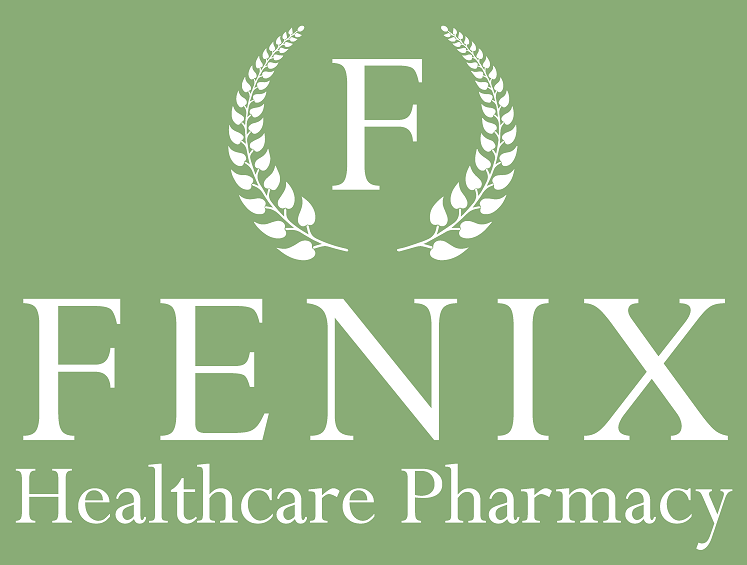Pharmacy First
Pharmacies play an increasingly important role in the UK healthcare system, offering accessible, convenient care for common illnesses and minor conditions. One such initiative designed to ease the burden on GP surgeries and hospitals is Pharmacy First. Pharmacy First allows patients to visit their local pharmacy for advice and treatment for specific conditions, many of which don’t require a GP visit. This service helps reduce waiting times and ensures that patients receive the care they need more quickly.
Pharmacy First enables individuals to receive treatment for minor illnesses and ailments without needing an appointment, and often without charge for those who are exempt from NHS prescription fees. For others, the cost is comparable to a prescription charge, making it an affordable option for many. Below, we’ll explore the seven key conditions that are covered under the Pharmacy First service, and why this initiative is beneficial for both patients and the broader healthcare system.
1. Ear Infection (Acute otitis media)
Acute otitis media is a common ear infection, particularly in children, but it can affect people of all ages. It occurs when the middle ear becomes inflamed due to bacterial or viral infections. Symptoms include ear pain, difficulty hearing, and in some cases, fever. While acute otitis media often resolves on its own, it can cause significant discomfort.
Pharmacies can assess the severity of ear infections and recommend treatment such as over-the-counter pain relief or, in some cases, refer patients to a GP if antibiotic treatment is required. Pharmacists can also provide advice on how to alleviate symptoms at home, such as using warm compresses to ease pain.
By visiting a pharmacy for initial assessment, patients can avoid unnecessary GP appointments, while still receiving the appropriate care for ear infections.

2. Impetigo
Impetigo is a highly contagious skin infection, usually caused by the bacteria Staphylococcus aureus or Streptococcus pyogenes. It typically affects children but can also occur in adults. Impetigo presents as red sores that can burst and form a crust, and it commonly appears on the face, around the mouth, or on the hands. Though the condition is not usually serious, it requires treatment to prevent it from spreading to others or worsening.
Pharmacists can provide initial treatment for impetigo, such as prescribing topical antibiotics, which are often effective in treating the infection. They can also offer advice on hygiene measures to prevent spreading the bacteria to other parts of the body or to other people.
By accessing treatment directly from a pharmacy, patients can get the necessary care quickly without waiting for a GP appointment, reducing the spread of the infection.
3. Infected Insect Bites
Insect bites are a common occurrence, particularly during warmer months or when travelling. While most bites are harmless, some can become infected, causing redness, swelling, and pain. An infected insect bite can become more serious if not treated promptly, particularly in individuals with compromised immune systems.
Pharmacists are well-equipped to assess whether an insect bite has become infected and recommend appropriate treatments such as antiseptic creams, antihistamines, or, in more serious cases, oral antibiotics. They can also provide advice on preventing further bites and managing the symptoms of insect bites.
In many cases, a quick visit to a pharmacy can resolve the issue, eliminating the need for a GP appointment and helping to reduce swelling and discomfort more quickly.
4. Shingles
Shingles is caused by the reactivation of the varicella-zoster virus, the same virus that causes chickenpox. It presents as a painful rash, usually on one side of the body, and can cause itching, burning, and in some cases, long-term nerve pain known as postherpetic neuralgia.
While shingles can require antiviral medication to manage the symptoms, pharmacists can provide supportive treatments to help ease the discomfort. This includes pain relief options and topical treatments to manage the rash. Pharmacists can also advise patients on whether they need to see a GP for prescription antivirals, which are most effective if administered within the first 72 hours of symptoms.
By providing early intervention, pharmacies help patients manage shingles symptoms more effectively while ensuring they seek further treatment if necessary.
5. Sinusitis
Sinusitis occurs when the sinuses become inflamed due to infection, leading to symptoms such as facial pain, a blocked or runny nose, headaches, and a reduced sense of smell. While sinusitis is often caused by viral infections, it can also develop from bacterial infections or allergies.
Pharmacists can assess whether the condition requires further treatment or if it is likely to resolve on its own. They can recommend over-the-counter decongestants, nasal sprays, and pain relief to alleviate symptoms. In more severe cases, pharmacists may refer patients to their GP for antibiotics if a bacterial infection is suspected.
Being able to visit a pharmacy for sinusitis treatment can prevent the need for a GP appointment, saving time and providing patients with quick access to relief from symptoms.
6. Sore Throat
A sore throat commonly occurs due to viral or bacterial infections, environmental factors like dry air, or allergies. While most sore throats resolve on their own within a few days, they can cause significant discomfort.
Pharmacists assess whether a sore throat likely results from a viral or bacterial infection and recommend treatments such as throat lozenges, sprays, or over-the-counter pain relief. If they suspect a bacterial infection like strep throat, they may advise consulting a GP for antibiotics.
The ability to quickly access treatment from a pharmacist helps patients alleviate discomfort without the need for a GP appointment, freeing up medical resources for more serious cases.

7. Urinary Tract Infections (UTIs)
Uncomplicated UTIs are infections of the urinary system that commonly affect women. Symptoms include pain or a burning sensation during urination, frequent urges to urinate, and cloudy or strong-smelling urine. While UTIs can be uncomfortable, they are often easy to treat with antibiotics.
Pharmacists can provide advice and treatment for uncomplicated UTIs, including the supply of antibiotics when appropriate. They can also advise on how to manage symptoms at home, such as drinking plenty of water and using over-the-counter pain relief.
By accessing UTI treatment directly from a pharmacy, patients can avoid long waits for a GP appointment and receive quick, effective relief from their symptoms.
Benefits of Pharmacy First
The Pharmacy First service offers numerous benefits for both patients and the wider healthcare system:
Accessibility: Pharmacies are often open for longer hours than GP surgeries and provide a walk-in service, allowing patients to access treatment quickly and conveniently.
Reduced Pressure on GPs: By treating minor ailments at the pharmacy level, Pharmacy First helps reduce the number of patients visiting GPs for conditions that can be managed with over-the-counter treatments.
Cost-Effective: For many patients, the service is free, or the costs are low and comparable to an NHS prescription charge, making it a cost-effective way to access healthcare.
Early Intervention: By providing quick access to treatment, pharmacies help prevent minor conditions from worsening or spreading, improving overall public health.
Patient Education: Pharmacists offer valuable advice on managing conditions, promoting good health habits, and understanding when further medical intervention is necessary.
Access Support in Wigston
Pharmacy First provides a valuable service that offers patients quick and convenient access to treatment for common ailments such as acute otitis media, impetigo, infected insect bites, shingles, sinusitis, sore throat, and uncomplicated urinary tract infections. Leveraging the expertise of our pharmacists, the service reduces the burden on GP surgeries and hospitals, ensuring more efficient use of healthcare resources.
At the heart of the Pharmacy First service is the pharmacist’s ability to provide expert advice, effective treatment, and peace of mind, all while improving accessibility and reducing waiting times for patients. As the NHS continues to evolve, initiatives like Pharmacy First will remain critical in offering timely, high-quality care to communities across the UK.
Contact us to make the most of our comprehensive care and minor ailment treatment options.


